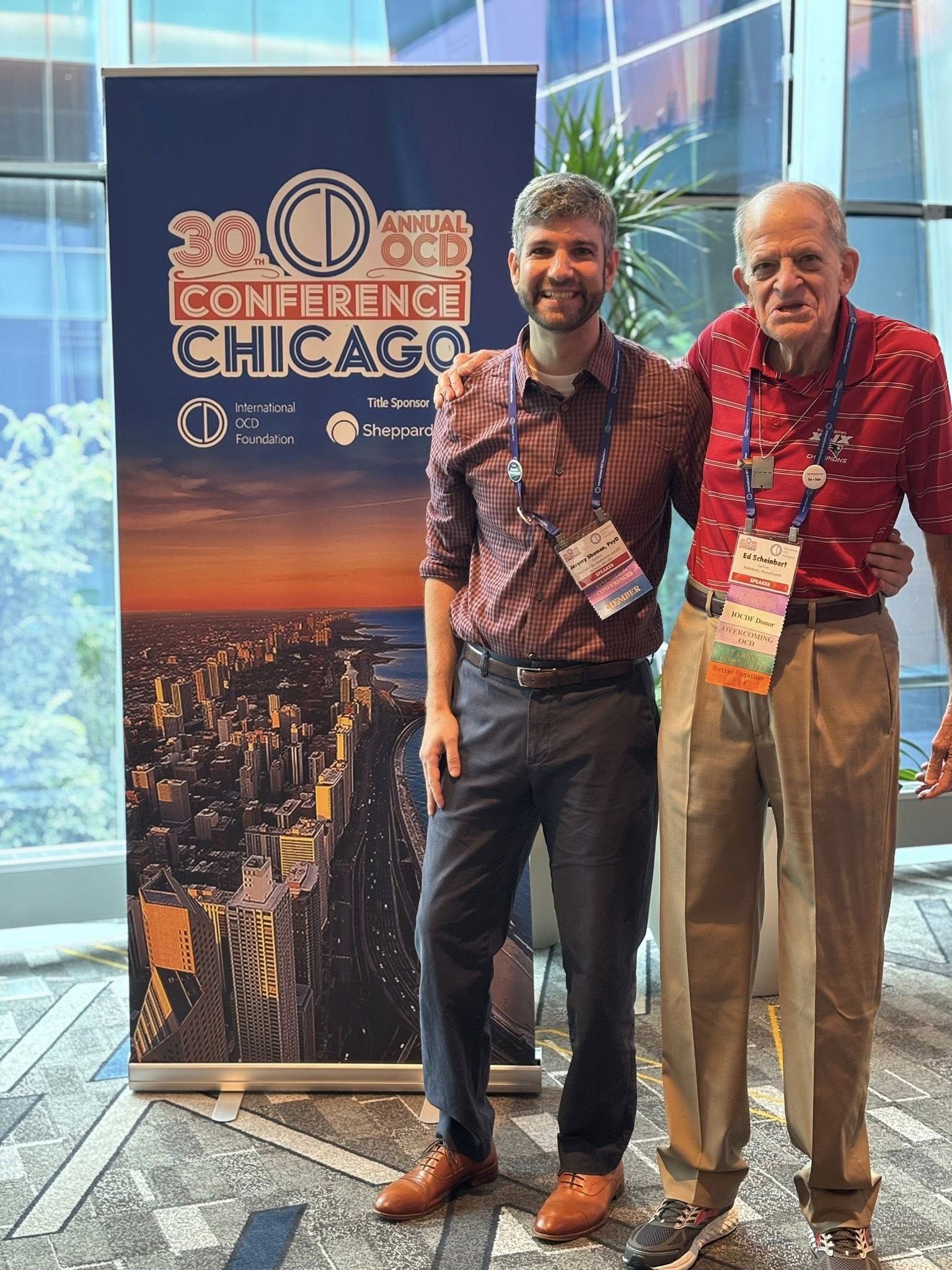At the 2025 IOCDF Conference, we had the pleasure of hosting a support group for older adults with centuries of experience living with OCD between them. Though we wrote a description of the group geared toward folks from the Baby Boomer generation, we had a very interesting mix of people ranging from someone in their 80s to someone in their 30s. That mix of people led to an interesting back and forth. All had participated in treatment on and off over the years; some had been involved in the OCD community for a long time. Everyone who wanted to share was able to give their personal feedback and was respected by others when they were presenting. During our time together, we invited participants to reflect on what they’ve learned through experience, and what they would want to share with others just starting their journey.
We asked: “If you could give tips to someone newer to managing OCD, what would you share from your experience?”
Here is what they shared, with their permission, mostly in their own words:
“I tell myself, ‘Those things are in the past and I want to come back to the present.’”
“I meditate twice per day to keep from getting too worked up.”
“If you are doing well with your OCD, manage your stress, or OCD will show back up.”
“Mindfulness and breathing help me stay grounded during spikes of anxiety.”
“Belief in a higher power, anything bigger than yourself as an individual, anything that connects us all together. It gives you perspective.”
“Acceptance of myself has been key.”
“Take things one day at a time. Don’t worry about fixing everything in the big picture. Just tackle what you need to do today.”
“In addition to ERP, I also take a holistic approach—good nutrition, meditation, time in nature, yoga.”
“Look for the small wins and celebrate them. Your OCD makes you beat yourself up over small mistakes; celebrate your small wins with that same intensity.”
“Get outside your comfort zone to explore your interests. That provides chances for natural motivation and exposure.”
“Always be curious and open to learning. Even if you don’t like something you are reading or listening to, you can finish it. Just take what you need and leave the rest.”
“Support groups give you community in a way that you can’t get in therapy.”
“Make it a priority to figure out how you are doing mental compulsions, and work on stopping them for as long as it takes until you get it.”
“You can’t outrun it. Doing quick compulsions and staying busy only works for so long.”
“Going to a conference can teach you a lot, connect you with community, and make you feel proud and hopeful.”
“Stick with it. Big shifts can happen very slowly over a very long time when you do.”
“Realize that you can choose to do nothing. Doing nothing is often a good response to a problem.”
“Self-talk helps me get out of ruminating. I’ll say something like, ‘Well, that’s enough of that.’”
These reflections highlight the resilience, creativity, and perseverance of people who have lived with OCD for decades. While each person’s journey is unique, common threads emerged: grounding in the present, accepting what cannot be controlled, finding strength in community, and celebrating progress one step at a time. These lessons will stick with us through the coming year, and hopefully, they can make an impact on others’ journeys through OCD recovery.
Jeremy Shuman, PsyD, is a psychologist in St. Louis, Missouri. He specializes in obsessive–compulsive disorder and autism spectrum disorder and is active in the IOCDF community.
Edward Scheinbart is an OCD expert having lived with it for 7 decades. He is a volunteer for the homeless in Watertown, MA and an IOCDF volunteer.

The views expressed in this blog post are the author's own and do not necessarily reflect the views of the International OCD Foundation. The content is for informational purposes only. The International OCD Foundation is not responsible for the accuracy of any information supplied by the author.


found very interesting I have major depressive disorder and bad ocd trying to find help supp3prt
This article beautifully captures the wisdom and resilience of older adults with OCD. Their honest tips are incredibly inspiring and provide hope for anyone struggling with the condition.